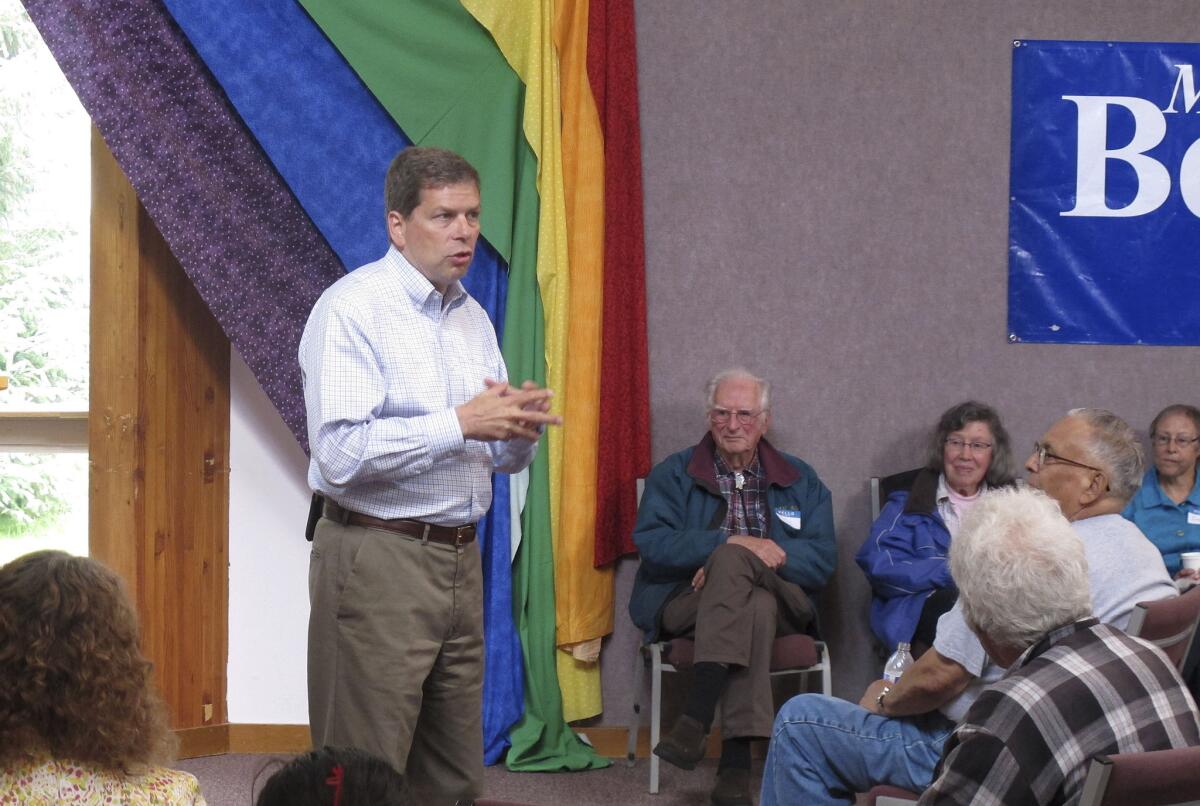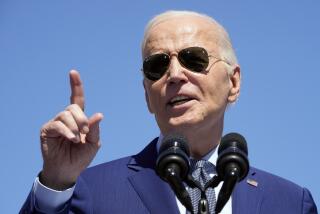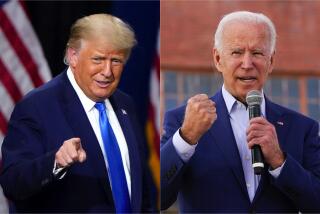Democratic strategists prescribe populism to cure party ills

Could a good strong dose of economic populism be the prescription for the lagging turnout ailment that plagues the Democratic party?
Some of the Democrats’ most seasoned strategists believe so, and they’ve been vocal on the subject as the midterm election moves toward its final phase.
“Populism decides who wins elections in America,” Michael Podhorzer, the political director of the AFL-CIO, told a group of reporters Wednesday.
With many Americans still feeling the pinch of stagnant wages and a lackluster job market, “the election tends to be about whom to blame,” he said.
Republicans are more than willing to point fingers at President Obama’s economic policies and the size of government, saying that both have held back growth. Democrats, Podhorzer said, need to counter that with a “message of economic fairness and economic well-being” aimed particularly at voters who are at or below the median income.
Stanley Greenberg, who has advocated populist economic arguments since before his stint as Bill Clinton’s White House polling chief, made a similar argument this week in releasing a new survey of voters in 12 Senate battleground states.
The poll showed that some voter groups that are key to Democratic chances are significantly “underperforming” relative to 2012, Greenberg said. That’s bad news for Democrats.
But the survey, which tested the impact of different political arguments on voter intentions, indicated that a “populist economic narrative” could motivate those voters, even in states that traditionally lean Republican.
The subjects Greenberg tested included raising the minimum wage, stronger laws to guarantee equal pay for women, closing corporate tax loopholes and raising taxes on the wealthiest Americans.
The argument is one often reprised by Democrats in difficult political times. Even now, opponents of the populist argument say some of those themes, particularly talk of tax increases, plays into Republican warnings about “class warfare” and risks scaring off college-educated, suburban voters among whom Democrats have made significant gains in recent elections.
But supporters of the populist argument say it’s the best chance Democrats have of narrowing the turnout gap that threatens many of their candidates in this year’s election.
Turnout in midterm elections is lower for both parties than it is in presidential election years, but Republican voters, who tend to be older and more affluent, typically have a smaller decline. In 2010, Democrats suffered a very large drop in turnout, and anything similar would doom their chances of holding onto key Senate seats in November.
So far, Democrats aren’t doomed. Polls continue to show their candidates are competitive -- and in some cases leading -- in some of the most hotly contested races.
Republicans are almost certain to make significant gains in November, but the polls suggest they could fall short of their goal of winning a Senate majority and that they could also lose some key governorships.
In North Carolina, for example, several recent polls, including some by Republican organizations, have shown Sen. Kay Hagan holding onto a slim lead over her GOP challenger, Thom Tillis, the speaker of the state House.
In Alaska, Democratic Sen. Mark Begich, who has highlighted populist appeals in his campaign, has remained competitive in a heavily Republican state.
And a new Marquette University poll released Wednesday showed the governor’s race in Wisconsin locked in a dead heat between Democrat Mary Burke and incumbent Gov. Scott Walker, who has been hoping for a strong reelection victory that could propel him forward in the GOP presidential sweepstakes.
Despite Democratic gains among college-educated voters, Podhorzer, Greenberg and other advocates of a more populist approach argue that the party’s prospects continue to rise or fall based on their ability to win voters who earn less than the median income.
In some states, successful candidates may need to find ways to win more affluent voters to get to a majority, but “for any of the Democratic candidates, winning the working class base is necessary,” Podhorzer said.
For more news and analysis on politics, follow me on Twitter @DavidLauter
More to Read
Start your day right
Sign up for Essential California for news, features and recommendations from the L.A. Times and beyond in your inbox six days a week.
You may occasionally receive promotional content from the Los Angeles Times.







